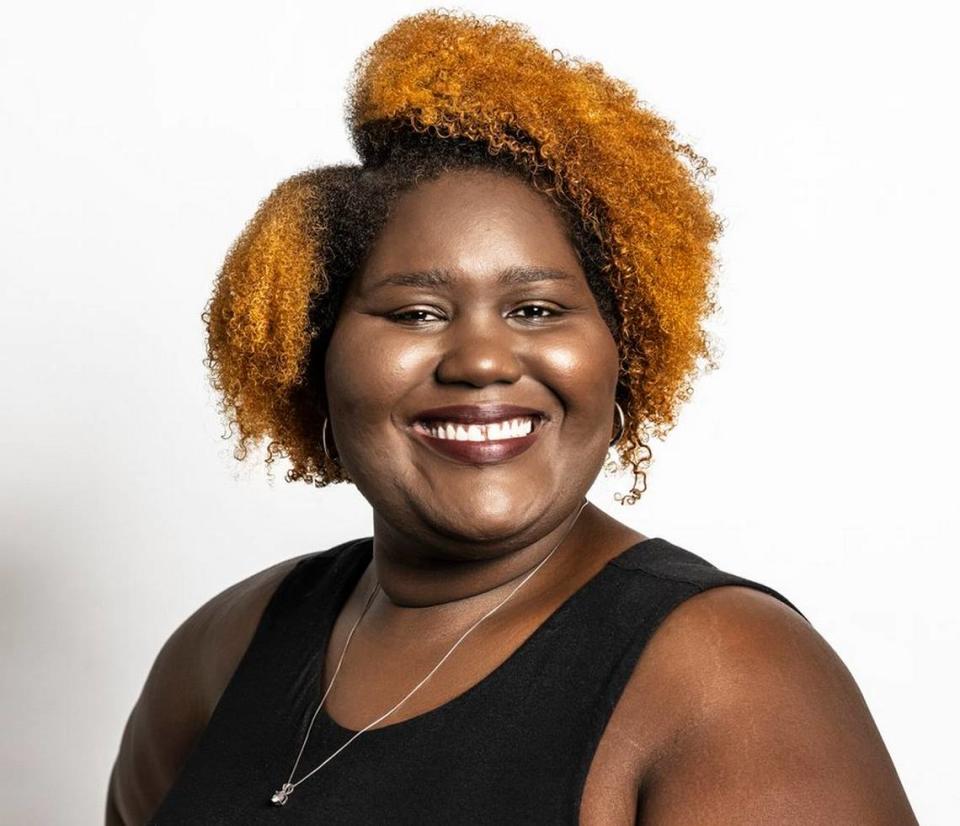Florida bill to criminalize filming police actions is yet another anti-Black move | Opinion
- Oops!Something went wrong.Please try again later.
State lawmakers are pushing witness intimidation legislation (Senate Bill 1126 and House Bill 1539) that purports to protect police officers. But these bills really are a not-so-veiled attack on communities of color that will make law enforcement less accountable. They build on the harmful legacy of the 2021 anti-protest bill, HB 1, which was a direct attack on the free-speech rights of those seeking racial justice.
If passed, this legislation would allow police officers greater authority to harass and criminalize people for documenting their use of excessive force. It would make it illegal to approach within 20 feet of a police officer (and, in the case of the Senate bill, other first responders) effectively criminalizing, with fines and jail time, the filming of police at close proximity.
There is no more compelling example for why this misguided bill should be rejected out of hand than Darnella Frazier. Frazier filmed the final moments of George Floyd’s life as he was being murdered by a Minneapolis police officer. Her courage in documenting Floyd’s murder was a key factor in getting justice for Floyd and his family, but under this ridiculous legislation, she would face criminal charges.
These bills are unnecessary. It already is illegal to obstruct police officers carrying out their duty. This proposal would make already tense situations worse and allow police to abuse their authority by invoking an invisible barrier between themselves and citizens, even when those within its radius are passive and non-threatening.
According to MappingPoliceViolence.org, police already have killed 113 people in the United States this year, including eight in Florida, with Black people twice as likely to be killed by police than white people — “even when there are no other obvious circumstances during the encounter that would make the use of deadly force reasonable.” Passing this legislation will do nothing to enhance public safety, but it will reduce police accountability at a time when more is clearly needed.
The Senate’s version of the bill includes broader language that shields not only police officers, but also emergency medical personnel from accountability. In the George Floyd case, medical responders failed to provide adequate treatment on the scene. Earlier this year, three emergency medical personnel were fired after their botched response to the fatal Tyre Nichols police beating in Memphis. There is no legitimate reason why citizens should not be able to hold emergency medical responders responsible for their actions — or inaction; on the contrary, these examples are among many that illustrate the need for greater accountability.
Like the anti-protest law that preceded it, this proposal was born out of an insidious, racially driven reaction to Black Lives protests. People in communities of color are most likely to pull out their phones to document questionable police activity. Despite the growing call for greater police accountability, The Washington Post found the number of Blacks killed by police actually has increased since Floyd’s death in 2020. Every Floridian should support our right to free speech and oppose criminalizing the simple act of filming the police.
Florida’s Republican leaders would be wise to focus on the underlying issues that have compelled Black Floridians to call for justice, rather than using fear and intimidation to prevent communities from documenting police violence. Urge state legislators to oppose SB 1126/HB 1539, the unjust witness intimidation bill.
Francesca Menes is a co-founder and board chair of The Black Collective. She is the former treasurer for the Florida Democratic Party.


